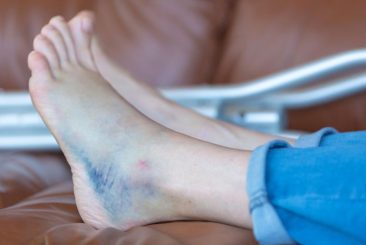Bone inflammation, often referred to as osteitis, is a condition where the bone or the surrounding tissues become inflamed, leading to pain, discomfort, and potential damage to the bone structure. Inflammation can result from various causes, including infection, injury, autoimmune disorders, or overuse of a particular bone or joint.
Symptoms of bone inflammation may include localized pain, swelling, redness, and restricted mobility in the affected area. To alleviate bone inflammation and promote healing, several strategies can be employed:
1. Medication Management:

- Consult a healthcare professional for proper medication to manage bone inflammation.
- Nonsteroidal anti-inflammatory drugs (NSAIDs), such as ibuprofen or prescription medications, can help reduce pain and inflammation.
- Follow your doctor’s instructions for safe and effective medication use.
2. Rest and Immobilization:

- Rest is crucial for the healing process. Avoid activities that exacerbate inflammation and give your body time to recover.
- In certain cases, immobilizing the affected area with braces or splints may be necessary to prevent further injury.
3. Cold Compresses:

- Applying cold compresses can provide quick relief from bone inflammation.
- Use a cold pack on the affected area to reduce swelling and numb the pain.
- Always place a cloth or towel between the cold pack and your skin to prevent frostbite, and limit each application to 15-20 minutes.
4. Physical Therapy:

- Physical therapy is essential for managing bone inflammation.
- A certified physical therapist can create a personalized exercise regimen to improve joint flexibility, strengthen supporting muscles, and promote overall bone health.
- Consistent attendance at physical therapy sessions can lead to lasting benefits for individuals with bone-related conditions.
5. Anti-Inflammatory Diet:

- Your diet can significantly impact inflammation levels in your body.
- Prioritize anti-inflammatory foods like fruits, vegetables, whole grains, and fatty fish rich in omega-3 fatty acids.
- These foods can help reduce systemic inflammation while supporting bone health.
6. Weight Management:

- Excess weight can increase strain on your bones and joints, exacerbating inflammation and pain.
- Maintain a healthy weight through a balanced diet and regular physical activity.
- Seek guidance from healthcare professionals or nutritionists for personalized weight management advice.
7. Stress Reduction and Relaxation:

- High stress levels can exacerbate inflammation and pain. Implement stress reduction techniques like mindfulness, meditation, or yoga to help alleviate symptoms.
- Adequate rest and quality sleep also play a vital role in reducing stress and supporting the healing process.
8. Proper Hydration:

- Staying well-hydrated is important for maintaining healthy bones and preventing inflammation.
- Water is essential for various bodily functions, including maintaining the health of your bones and joints.
These strategies can help you effectively manage and alleviate bone inflammation, leading to improved comfort and mobility. However, it’s essential to consult with healthcare professionals to develop a comprehensive treatment plan tailored to your specific condition and needs.
Disclaimer:
The information contained in this article is for educational and informational purposes only and is not intended as a health advice. We would ask you to consult a qualified professional or medical expert to gain additional knowledge before you choose to consume any product or perform any exercise.








